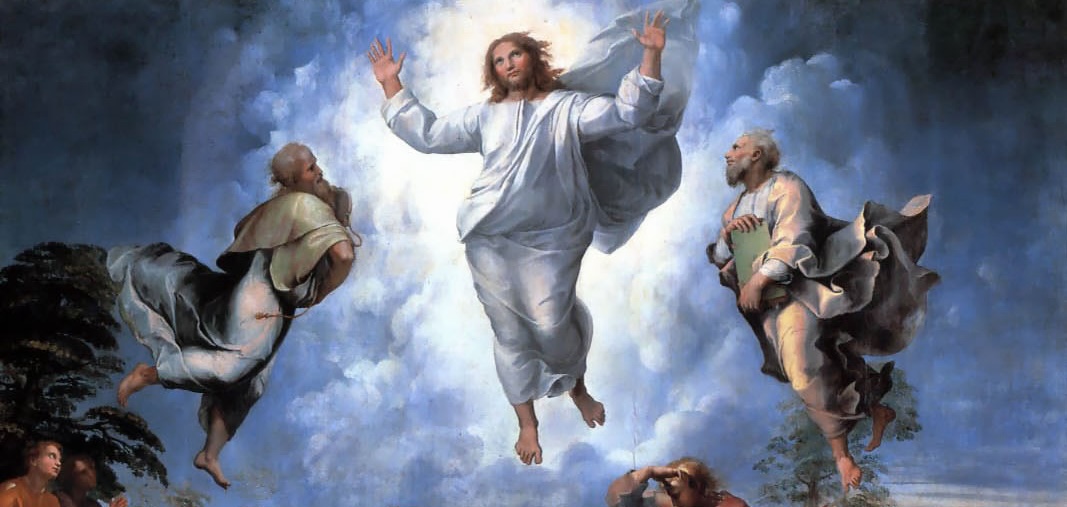This sermon was originally preached in the Anglican Parish of Kalamunda-Lesmurdie, on the Last Sunday after Epiphany 2024.
Texts: 2 Kings 2.1-12, 1 Kings 19.11-12, Mark 2.2-9
What would you do if God appeared to you… and told you emphatically that they are not the God that you believe in? What would you do if God told they are not your God, the God that you picture in your mind… they are so much greater, so much more wonderful than that. Would remain faithful to God? Could you dare to let your own conception of God change, and broaden? Do you dare to embrace an indescribable God?
Today I would like us to focus upon the Prophet Elijah.
We hear of Elijah in two of our readings. We are told of him being drawn up into heaven, an event witnessed by Elisha, his disciple, his successor, his adoptive son. And we are told of Elijah returning, appearing to the disciples alongside Moses atop a mountain, as Jesus shone with perpetual, uncreated light.
Elijah was and is a huge figure for the Jewish people. His story is remarkable… every time I read it, found in the first and second books of Kings, I find myself moved, and deeply challenged. Elijah’s name proclaims that he has a loyalty to a particular God – a loyalty to a particular understanding of God. His name declares: my God is the God of Israel, the God who said to Moses, “I Am Who I Am.”
Elijah’s life and ministry was girded with conflict. He derided the prophets of a foreign god, Baal, whose cult had taken hold. He fought those prophets, he mocked those prophets… he killed those prophets. Elijah did all of this for his God. His God who he thought need his defence, his violence. And then the consequences came, and Elijah fled, marked for death by his enemies. What goes around, comes around, perhaps.
Elijah found himself bereft. Several times angels came to Elijah, bringing him food, and water. But Elijah did not rally. And then finally, the angel said to Elijah, “Go out and stand on the mountain before the Lord, for the Lord is about to pass by.”
Now there was a great wind, so strong that it was splitting mountains and breaking rocks in pieces before the Lord, but the Lord was not in the wind, and after the wind an earthquake, but the Lord was not in the earthquake, and after the earthquake a fire, but the Lord was not in the fire, and after the fire a sound of sheer silence.’
(1 Kings 19.11-12 NRSVUE)
A sound of sheer silence.
Elijah, this turbulent man, this violent man… this man encountered God. And God was not in the wind that rended of mountains, that tore at cliff faces, which split the rock. The earth shook, bucked, broke… but God was not in that. Fire broke out, terrible and swift… and God was not in that.
Wave after wave after wave of violence. To Elijah’s eyes, confirming everything he thought of God, of God’s wrath, God’s glory, God’s might. And yet… God was not in that.
Elijah’s God was not the God of Elijah’s imagining.
On Wednesday, we will walk out in the wilderness. For forty days and forty nights, your lives will be changed.
The disciples followed Jesus out into the wilderness. They followed him up that mountain. And there they encountered two great heroes of the Jewish people, two heroes who had been gathered into God’s closer presence. They went up that mountain, they breathed the rare air, and God, Holy and Triune, overshadowed them, cloaking them in most sacred darkness.
And then Jesus shined - he shined with light perpetual, the brightest, the purest light that has ever been known in creation. That light was a proclamation that Jesus Christ is God’s beloved Son. A proclamation that was matched by a voice from heaven.
And there, part of the witness to Jesus Christ, was Elijah. Elijah who had been such a figure of violence. Elijah who had sought to make God in his own image: perhaps the very definition of sin. Elijah who, despite all of that, had been fed by God, nourished by God. Elijah to whom God had disclosed God’s innermost and most sacred silence.
Elijah who had been saved.
My friends, this is salvation. This is reconciliation. This is the path that is open to all of us, the path that God calls us to take. In three days, we set forth on our Lenten pilgrimage. For forty days and forty nights, we will walk in the wilderness.
You may find yourself on that mountain. A mountain alike that where Elijah met the God that was not his God. The mountain where Elijah realised that God didn’t need Elijah’s violence, that God didn’t need Elijah’s wrath.
Our God is the God of all. Our God is the God who can never be described. Our God is the God who came into the world in the person of Jesus Christ, so that we might be reconciled, and brought into eternal life.
Lent is not a burden. It is a holy opportunity. Take the next few days to pray. Ask yourself what it is that gets between you and God. And then put that to God in prayer. Ask God for guidance, ask God what it is that you must do, in order to better know your creator.
And then go forth boldly into the season of Lent.
Dare, like Elijah did, to turn to God, to look at God. Dare to be confronted by the God is that is not yours, or mine, but who simply and most wonderfully Is. Dare to accept the grace of the God Who Is, and who always shall be.
